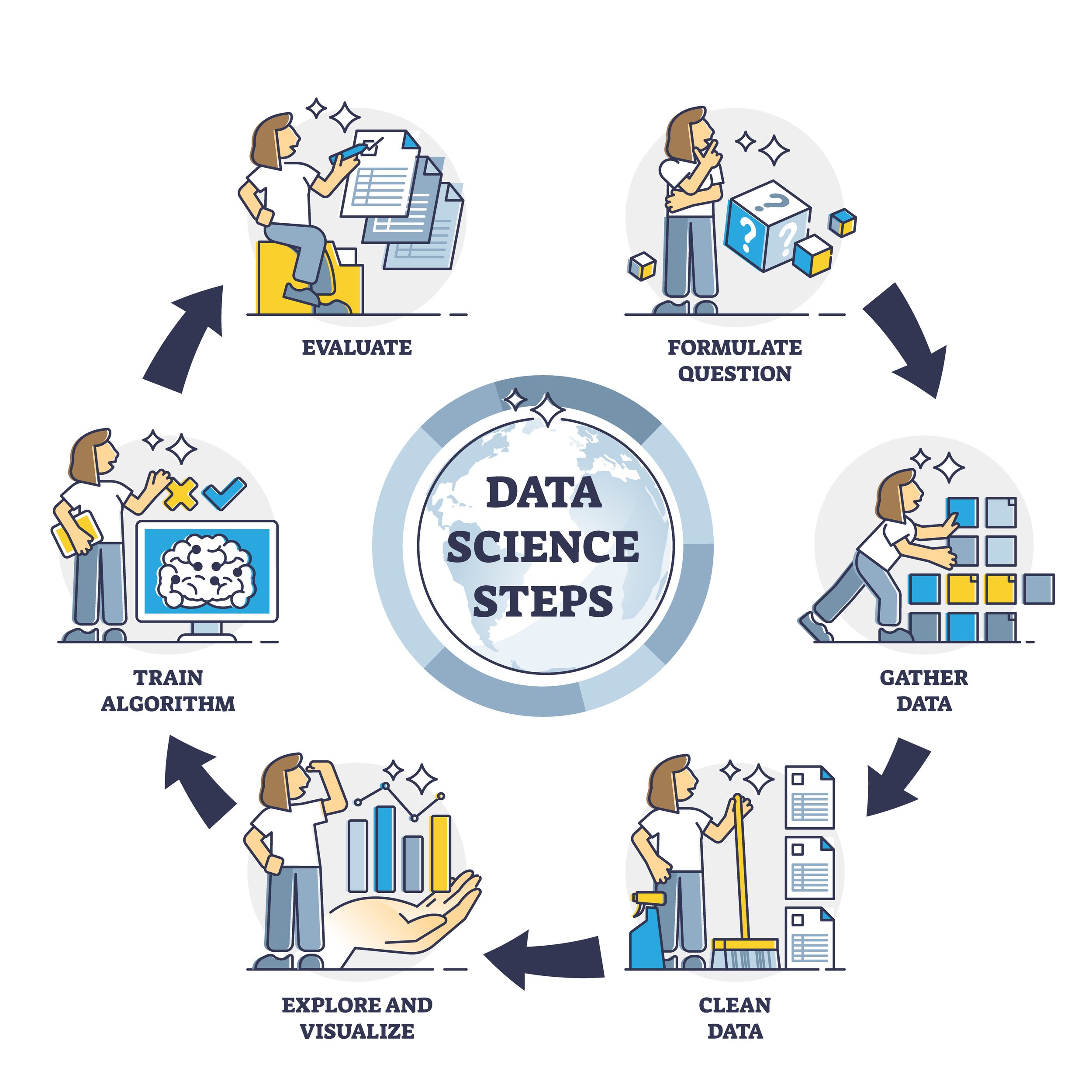Data Science Research
Learn the Fundamentals of Data Science
Data Science is an interdisciplinary field that utilizes scientific methods, algorithms, and systems to extract knowledge and insights from structured and unstructured data. By integrating techniques from mathematics, statistics, and computer science, Data Science enables businesses to make informed decisions, predict future trends, and uncover hidden patterns within vast datasets.
Key Components of Data Science:
Data Analysis Data analysis involves inspecting, cleaning, and modeling data to discover useful information, draw conclusions, and support decision-making. This process includes data wrangling, exploratory data analysis (EDA), and visualization techniques.
Machine Learning (ML) Machine Learning is a critical aspect of Data Science that focuses on creating algorithms to learn from and make predictions based on data. It encompasses various approaches such as:
Supervised Learning: Algorithms trained on labeled data to predict outcomes or classify data points.
Unsupervised Learning: Algorithms that identify patterns and relationships in unlabeled data.
Reinforcement Learning: Algorithms that learn by receiving rewards or penalties for actions, optimizing performance over time.
Applications of Data Science
Data Science has a profound impact across various industries, driving innovation and efficiency:
Healthcare: Enhances diagnostics, personalizes treatment plans, and improves patient care through predictive analytics and data-driven insights.
Finance: Automates trading, detects fraudulent activities, and assesses risk using sophisticated models and algorithms.
Retail: Optimizes inventory management, personalizes customer experiences, and forecasts demand to streamline operations.
Marketing: Improves targeting and personalization, measures campaign effectiveness, and enhances customer segmentation.
Transportation: Powers route optimization, predictive maintenance, and autonomous vehicle technologies.
3. Statistical Analysis Statistical analysis involves applying statistical techniques to interpret data, identify trends, and test hypotheses. It is fundamental for understanding data distributions, relationships, and variability.
4. Big Data Technologies Big Data technologies handle and process large, complex datasets that traditional data processing software cannot manage. This includes tools and platforms like Hadoop, Spark, and NoSQL databases, which enable scalable storage and analysis.
5. Data Visualization Data visualization is the graphical representation of data, helping to communicate insights effectively. Techniques include charts, graphs, heatmaps, and dashboards, making complex data more accessible and understandable.
iTechnology’s Commitment to Data Science
Data Science is at the heart of digital transformation, empowering organizations to leverage data for strategic advantage. At iTechnology, we are dedicated to exploring every facet of Data Science, from advanced machine learning algorithms to cutting-edge big data technologies. Our mission is to translate complex data into actionable insights, driving innovation and operational excellence for our clients. We strive to deliver user-friendly, data-driven solutions that not only enhance business performance but also create new opportunities for growth and success.
By understanding and implementing Data Science, businesses can unlock the full potential of their data, fostering a culture of informed decision-making and continuous improvement. At iTechnology, we are committed to being at the forefront of this data revolution, guiding our clients through the complexities of Data Science to achieve sustainable, data-driven success.






